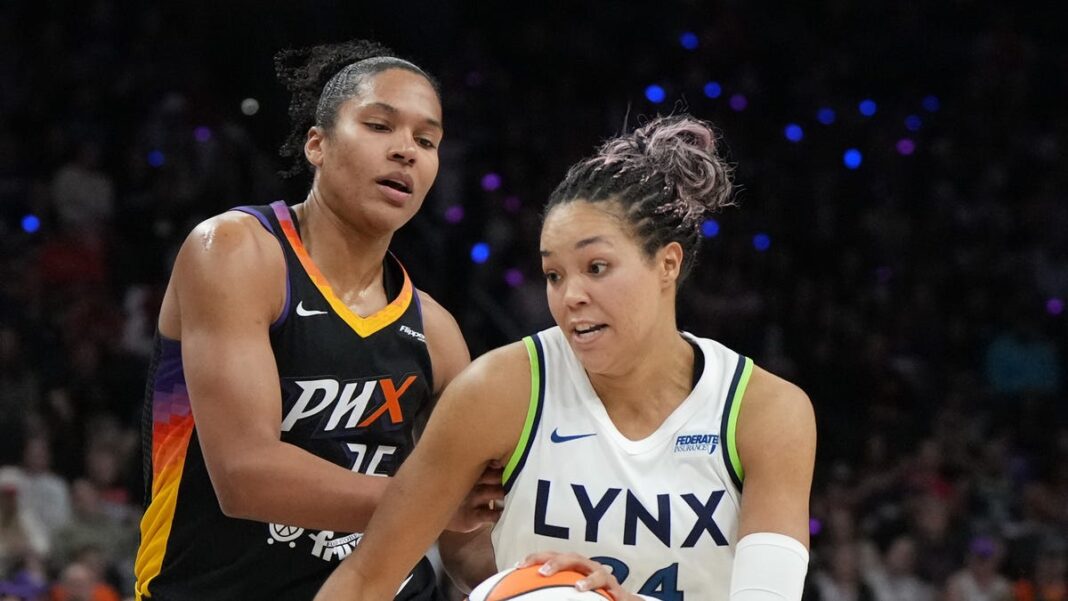Cheryl Reeve Calls Out WNBA Officiating After Napheesa Collier Injury
The emotional intensity and physicality of the WNBA have reached a boiling point, especially following a recent incident that has left fans and players alike questioning the league’s officiating standards. Cheryl Reeve, the head coach of the Minnesota Lynx, has made headlines for her passionate postgame remarks regarding the officiating crisis after star player Napheesa Collier sustained what is suspected to be a serious injury during a pivotal Game 3 against the Phoenix Mercury.
The Incident
During a crucial moment in a game already rife with tension, Collier collided with Alyssa Thomas, walking off the court visibly injured and in tears, a sight that no fan wants to witness. Compounding the situation, Reeve was ejected after a heated exchange with officials. Her frustration is emblematic of a broader trend in the league—a perilous disregard for player safety amidst escalating on-court physicality.
A Rising Concern
For years, players and coaches have voiced concerns about the increasing physicality of WNBA games, claiming that officiating has not kept pace with the game’s evolution. The athleticism and strength of players have intensified, resulting in what many consider a hazardous environment where injuries are becoming more frequent. As Reeve articulated with palpable anger, “If this is what our league wants, okay. But I want to call for a change of leadership at the league level when it comes to officiating.”
Grievances and Frustrations
Reeve’s fierce criticism transcends mere disappointment. She expressed that the officiating crew in this semifinal matchup was unfit for a playoff game, stating, “for the leadership to deem those three people semifinals playoff-worthy is f—ing malpractice.” This comment underscores the gravity of the situation—it’s not just about the game but about ensuring the safety of the athletes involved.
An Increasingly Physical Game
The WNBA has always prided itself on being a competitive and physical league. However, as players have become faster and stronger, the level of acceptable physical play has escalated to alarming heights. Collier, for instance, usually finds herself heavily guarded and is often the target of aggressive defensive tactics that could lead to severe injuries. Despite this, in a playoff game where the stakes are sky-high, it is shocking to note that Collier and fellow MVP candidate A’ja Wilson had only one free throw between them over a grueling 75 minutes. Such stats give rise to questions about the consistency and efficacy of officiating.
Concerns from the Coaching Community
Reeve isn’t alone in her concerns. Becky Hammon, head coach of the Las Vegas Aces, has echoed similar sentiments, stating that the level of physicality in the WNBA would not be tolerated in the NBA. “Most of my assistants come from the NBA, and they’re like, `This would not fly in the NBA. This level of physicality would not fly in the NBA. There would be fights,’” Hammon remarked. This perspective outlines a disturbing contrast between how the two leagues manage physical play and indicates a potential need for a reevaluation of standards in the WNBA.
Why the Problem Persists
The discrepancy in officiating may partly stem from the fact that WNBA officials are not full-time employees, unlike their NBA counterparts. While the WNBA asserts that they monitor officiating and make improvements throughout the season, the inconsistencies and ineffectiveness observed on the court suggest otherwise. Championship games should reflect the highest level of professionalism, yet it is often marred by questionable calls and blatant mistakes.
The Broader Implications
The implications of this officiating dilemma extend well beyond a singular game or incident. As the popularity and viewership of the WNBA continue to rise, the league must recognize its responsibility to provide a safe and fair playing environment. The injuries and unsafe play seen on court are reminiscent of a league that has not fully matured to meet modern sports standards.
Calls for Action
Player safety must become a priority, as highlighted by Reeve and other coaches who take their responsibilities seriously. There’s an urgent need for the WNBA to take steps towards professionalizing its officiating, ensuring that all players are protected and that each game reflects the skill and athleticism that the league represents.
As Reeve’s passionate plea resonates, the call for change has never been more critical. For a league on the rise, it must take action to cultivate an environment where talents like Napheesa Collier can shine without fear of injury due to unchecked physicality. The time is now for the WNBA to step up and address these urgent concerns.



